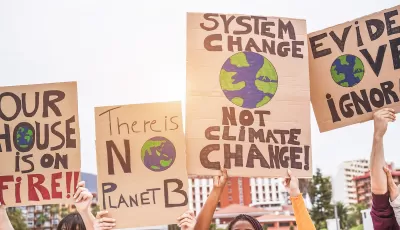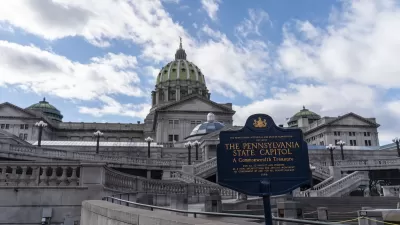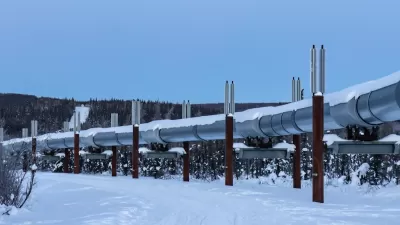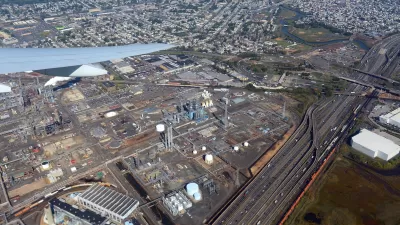A new study affirms other research showing that a small but vocal minority of Americans don’t believe climate change exists.

A new study of X (formerly Twitter) data from the University of Michigan shows that almost 15 percent of Americans still don’t believe that climate change is real, reports Aliya Uteuova in The Guardian. “Using artificial intelligence, researchers analyzed over 7.4m tweets posted by roughly 1.3 million people on the social media platform X (previously Twitter) between 2017 and 2019. The social media posts were geocoded, and classified as ‘for’ or ‘against’ climate change using a large language model, a type of artificial intelligence developed by OpenAI.”
Denial was centered primarily in central and southern states. “Acceptance and belief in global warming is most prevalent along the west and east coasts, correlating with those regions’ high rates of Democratic voters. Still, clusters of denialism exist within blue states, like in the case of Shasta county, California.”
Researchers note that the use of AI in research is still an emergent field, fraught with ethical questions.
FULL STORY: Nearly 15% of Americans don’t believe climate change is real, study finds

Trump Administration Could Effectively End Housing Voucher Program
Federal officials are eyeing major cuts to the Section 8 program that helps millions of low-income households pay rent.

Planetizen Federal Action Tracker
A weekly monitor of how Trump’s orders and actions are impacting planners and planning in America.

Ken Jennings Launches Transit Web Series
The Jeopardy champ wants you to ride public transit.

USDOT Waters Down Self-Driving Car Regulations
The agency is reducing reporting requirements for autonomous vehicles and cars with self-driving features, prompting concern among safety advocates who say transparency is essential to the safe deployment of AV technology.

‘Minnesota Nice’ Isn’t so Nice When You Can’t Find a Place to Live
The Economic Development and Housing Challenge Program can help address the scourge of homelessness among Indigenous people.

NYC Open Streets Organizers Call for City Support
The number of open streets projects has dropped year after year as volunteer groups struggle to fund and staff them.
Urban Design for Planners 1: Software Tools
This six-course series explores essential urban design concepts using open source software and equips planners with the tools they need to participate fully in the urban design process.
Planning for Universal Design
Learn the tools for implementing Universal Design in planning regulations.
Heyer Gruel & Associates PA
Ada County Highway District
Institute for Housing and Urban Development Studies (IHS)
City of Grandview
Harvard GSD Executive Education
Toledo-Lucas County Plan Commissions
Salt Lake City
NYU Wagner Graduate School of Public Service





























